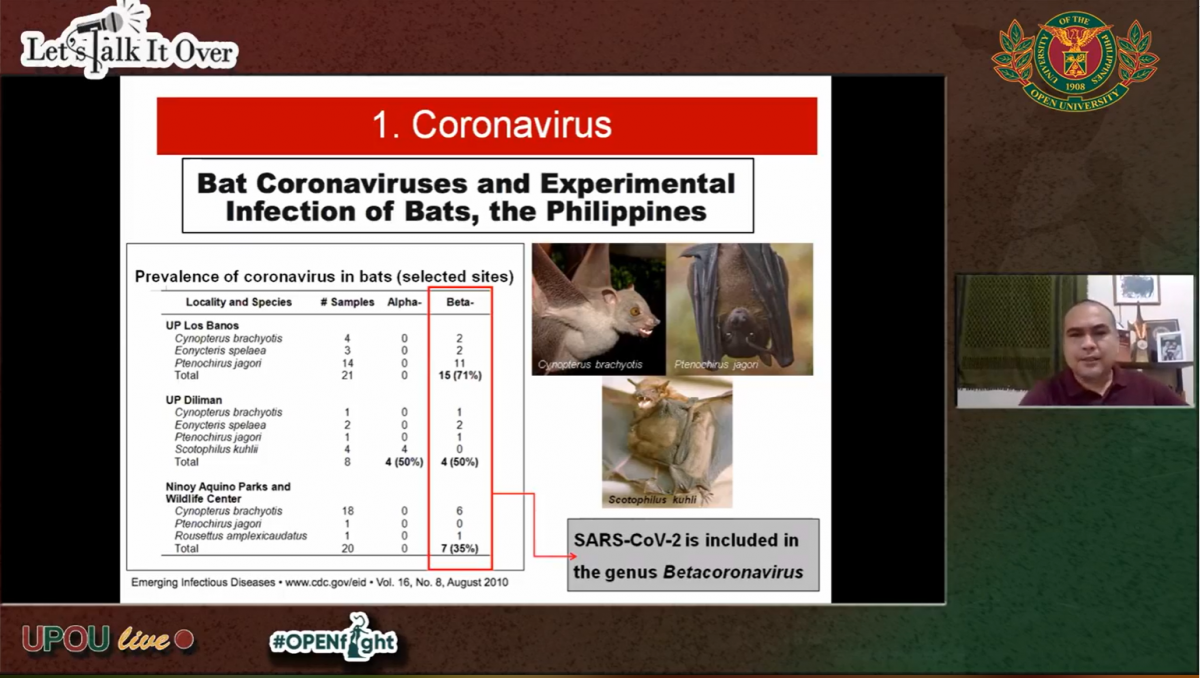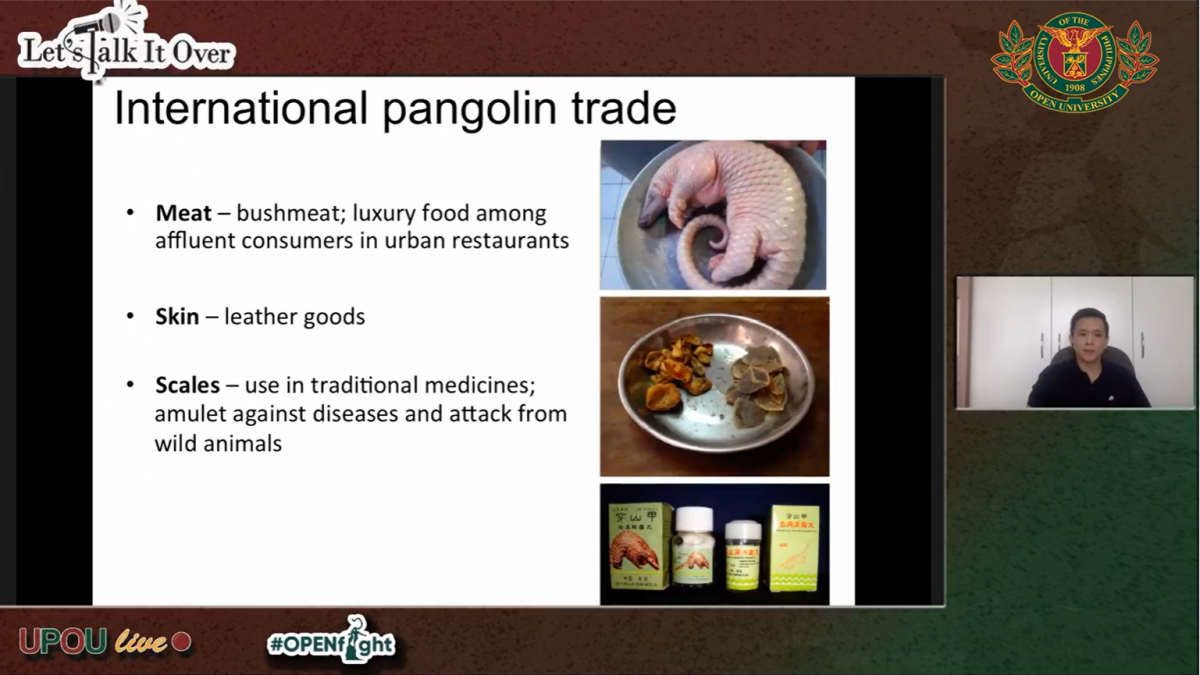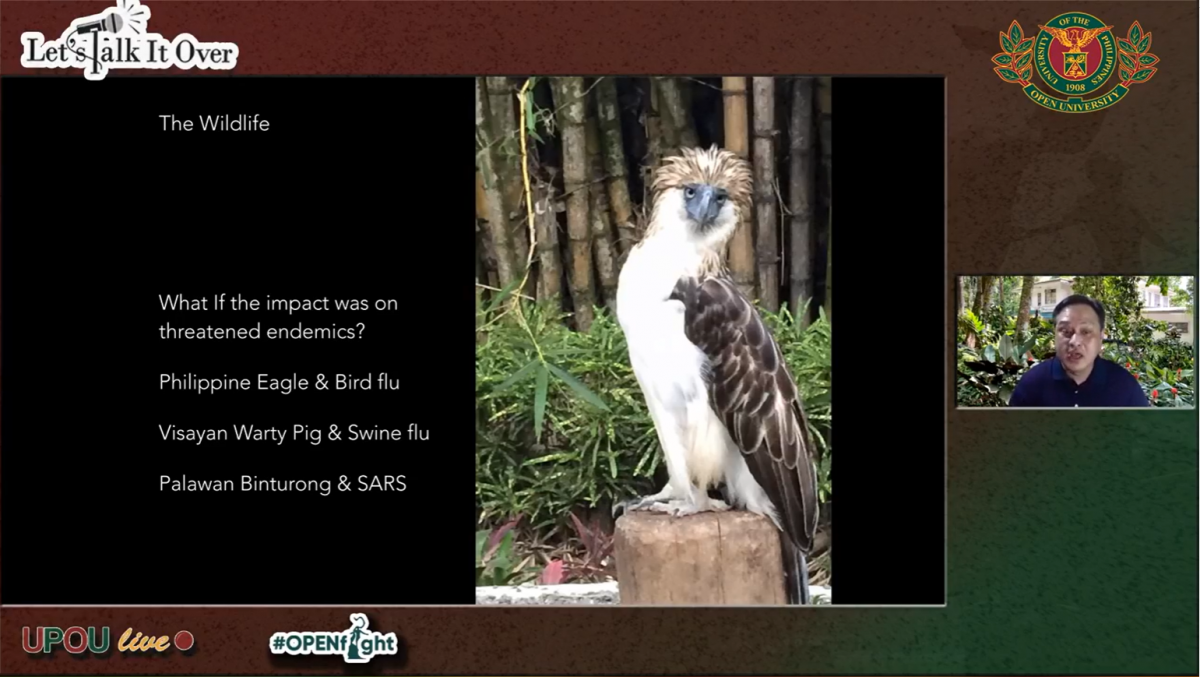Is wildlife a friend or a foe in the COVID-19 pandemic? This is what the Master of Environment and Natural Resources Management (MENRM) program discussed during the Let’s Talk it Over (LTiO) Lecture Series on 17 September 2020 and live-streamed via the University of the Philippines Open University (UPOU) Networks.
Dr. Consuelo Dl. Habito, Chair of the MENRM program, opened the webinar with the introduction of the three speakers. The first was Prof. Phillip Alviola, associate professor and bat ecologist at the University of the Philippines Los Baños (UPLB) and curator at the UPLB Museum of Natural History. Prof. Alviola discussed current knowledge about potential zoonotic viruses carried by Philippine bats, where he shared results of bat virus research conducted by UPLB and University of Tokyo from 2007 to 2020. Their published results on viruses from Philippine bats include coronavirus, hantavirus, reston ebolavirus, gammaherpesvirus, and pteropine orthoreovirus.

The second session was led by Mr. Emerson Sy, herpetologist and consultant at TRAFFIC – a non-governmental organization on wildlife trade. Mr. Sy focused on pangolin consumption, where he narrated instances of pangolin trade and trafficking, and its link to COVID-19.
“Despite legal protection accorded to pangolins, poaching and trafficking occur on a huge scale globally [with] an estimated 895,000 pangolins trafficked globally in the last two decades,” shared Mr. Sy in his presentation.
He pointed out that animal abuse and mishandling have caused zoonotic diseases, such as SARS-COV-1 in 2002 and MERS-CoV in 2012. According to Mr. Sy, although studies have shown that Sunda pangolin is likely an intermediate or direct host of COVID-19, coronaviruses are known to have multiple intermediate hosts.

The last lecture was delivered by Dr. Juan Carlos Gonzalez, professor at UPLB and 11th director of the UPLB Museum of Natural History. Dr. Gonzalez discussed pandemics and wildlife in the anthropocene, where he related the first two lectures to emphasize the role of humans in pandemics.
“It’s easy to blame a bat, but is our wanton destruction of nature and the traditional habitats of species responsible for the pandemic gripping the world right now? Experts concur that the loss of biodiversity, mainly because of humans, is directly connected to the spread of deadly diseases like COVID-19,” shared Dr. Gonzalez as he quoted John Vidal, journalist, author, and former environment editor of The Guardian newspaper.
Dr. Gonzalez also talked about anthropogenic transfer of zoonotic diseases and its impacts on an already restricted-range, small population of threatened endemic wildlife.

An open forum moderated by Dr. Habito was held on the last part of the LTiO. Viewers’ questions were raised via UPOU Networks chat box, YouTube comment section, and Facebook comments section. A total of 2,883 views in the three platforms were recorded during the webinar.








